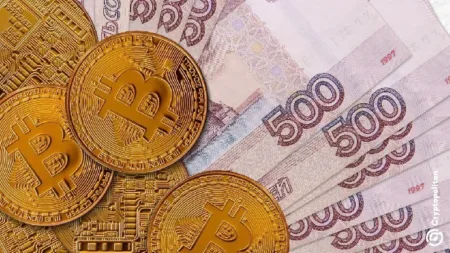Disclosure: The views and opinions expressed here belong solely to the author and do not represent the views and opinions of crypto.news’ editorial.
While the United States is often seen as a leader in both financial and technological advancement, it has clearly struggled in recent years to establish clear (and consistent) crypto regulation frameworks.
You might also like: Can global regulation keep up with the tokenization boom? | Opinion
This lack of clarity has allowed other countries, particularly in the Middle East and Asia, to take the lead. High-growth economies in these regions are creating frameworks tailored to digital assets, which are often more effective than those in the West. These regulations offer a model for the rest of the world to follow. If the West doesn’t catch up, it risks being left behind as the crypto industry shifts its center of gravity.
The US should not be the blueprint for regulations
In the past years, the US has struggled in its attempt to regulate the crypto industry, with regulatory entities, such as the SEC, often taking hostile and inconsistent measures.
High-profile lawsuits against Ripple and Coinbase made headlines globally, which have cast a shadow over innovation and pushed some crypto firms to move to friendlier countries. The absence of clear guidelines from the SEC has left founders and investors walking on eggshells, uncertain if their next move could get them into legal trouble.
One of the main issues is that the US has been trying to fit digital assets into existing laws (e.g., securities and commodities regulations), which were never designed for crypto in the first place.
While the US’s newly elected crypto-friendly Congress indicates hope for progress, the country has a lot of catching up to do. Waiting for the United States to set the standard is no longer viable when others are already leading.
Emerging markets are the hidden gem of regulations
In the meantime, high-growth markets such as Indonesia and Malaysia have introduced a new way to approach crypto regulations, with an understanding that digital assets are not enemies but should be regulated like any other assets.
While the US SEC spent years trying to classify cryptocurrencies, such as Ethereum (ETH), as securities, Indonesia’s Commodity Futures Trading Regulatory Agency (known as BAPPEBTI) officially classified all digital assets as commodities as early as 2019.
In Malaysia, the Securities Commission created a comprehensive framework for crypto exchanges with high standards for licensing, investor protection, and anti-money laundering. This has also been implemented in Indonesia, which rolled out clearer rules for exchanges, such as mandatory client fund segregation, strong security demands, and token listing requirements. In both countries, these measures have reduced fraud and improved trust in the overall system, making using crypto safer for everyone (and more enticing!).
This is the level of clarity and engagement we need as we move into broader web3 adoption globally.
As a result, the Asian crypto market is thriving. The Indonesian crypto market surpassed $30 billion in transactions from January to October 2024, a 350% increase compared to the previous year. It is now the third-largest country globally for cryptocurrency adoption, just ahead of the U.S. In fact, in this index, seven of the top 20 countries are in Central and Southern Asia and Oceania, which signals that the crypto world is a multipolar industry.
Emerging markets lead in crypto utility
But why are high-growth markets seemingly more advanced in crypto regulations? It’s because in these markets, crypto utility shines brighter than anywhere else.
Crypto addresses several pitfalls, such as high remittance costs and limited access to owning assets and investing. On average, remittance fees are around 6.65% of the amount sent, which can take a big portion out of what workers send back to their families. In the Philippines, remittances make up nearly 10% of the country’s GDP, showing just how important they are.
Digital assets also serve as a hedge against inflation. In Asia and the Middle East, gold has traditionally been a safe and reliable asset that has been able to retain value over the years. However, access to owning physical gold is complicated, with high entry fees, storage issues, and a lack of accessibility for everyday people. Crypto allows the creation of tokenized gold, enabling consumers to own a tokenized, digital fraction of gold at a much lower price, thereby lowering barriers to entry.
Crypto regulations in high-growth markets aren’t perfect, and it will take a few more years for them to become even more comprehensive. But these markets understand that effective regulation can’t be one-size-fits-all, and they are tailoring rules for real digital asset use cases.
The future of crypto won’t be defined by Wall Street or Silicon Valley. It will be defined by the people who can use crypto daily to solve real-world problems and address the pitfalls of traditional finance. Which is exactly what crypto was made for.
Read more: Crypto can boost economic welfare in underbanked regions | Opinion
Mohammad Raafi Hossain
Mohammad Raafi Hossain is the CEO and co-founder of Fasset, a digital asset platform focused on financial inclusion in emerging markets, and part of Own’s founding team, Fasset’s L2. Before launching Fasset, Raafi served as an advisor to the UAE Prime Minister’s Office on technology and worked with the United Nations in the MENA region, where he focused on sustainable development. Raafi holds an academic degree in Environmental Economics and Sustainable Development from the University of California, Berkeley, and Harvard University.
Read the full article here









